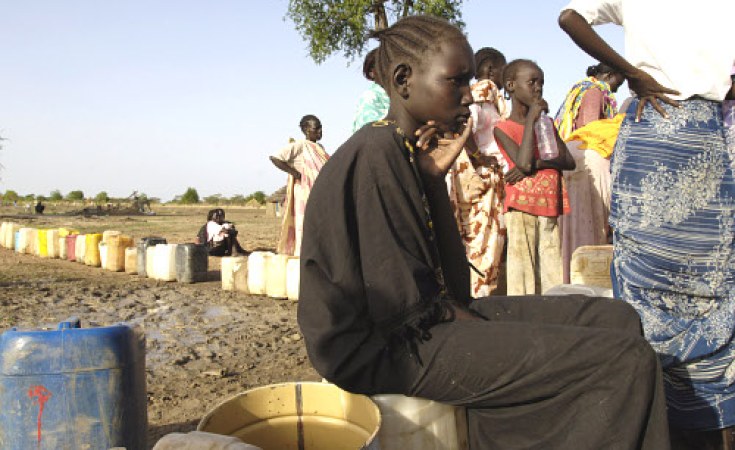A small piece of land in Sudan and one of the international tribunals based in the Netherlands are about to have a large impact on Sudan's present and future.
With memories of Sudan's bloody north-south civil war still fresh, on Wednesday the Permanent Court of Arbitration in The Hague will issue its decision in a case involving Abyei, an area of central Sudan that is rich in oil deposits and claimed both by the north and the south.
What happens in Abyei in the coming days and weeks will be a harbinger of things to come in Sudan's complex political future, for it will give an indication of whether the ruling parties of n\orth and south Sudan can bridge their differences peacefully in the future.
The reaction to the ruling will be the first major test of commitments made by the north's National Congress Party (NCP), led by President Omar al-Bashir, and the south's Sudan People's Liberation Movement (SPLM) at a recent meeting in Washington.
It will also test the strategy of engaging the NCP which is being pursued by President Barack Obama's special envoy to Sudan, Major General J. Scott Gration.
The 2005 Comprehensive Peace Agreement (CPA) between the NCP and the SPLM, which ended a civil war that cost about two million lives, established a commission charged with determining the boundaries of Abyei and whether it belongs to the north or south. But the NCP rejected the commission's decision, which favored the SPLM. The two parties then agreed to refer the case to the Permanent Court of Arbitration for a final ruling.
Meanwhile, Abyei remains under special administrative status and was last year the scene of the most significant north-south violence since the signing of the CPA. For several days in May 2008, Sudan seemed on the verge of a return to war as much of Abyei was burned and an estimated 60,000 people fled the area. Many have yet to return.
The coming decision is only the latest in an escalating series of tests of the NCP and SPLM's willingness to cooperate – and of the international community's ability to influence outcomes in Sudan.
Darfur remains in crisis. Nationwide elections, twice delayed already, are scheduled for April 2010. The process initiated by the CPA is meant to culminate in January 2011 with a referendum in which the southern Sudanese will decide whether to remain part of Sudan or secede, and a simultaneous referendum in Abyei on whether to be part of the north or south.
All eyes will be on how Wednesday's verdict is received in Abyei. Senior politicians from the NCP and SPLM, along with diplomatic heavy-hitters such as General Gration and the top United Nations official in Sudan, Ashraf Qazi, will be there when the verdict is made public.
With so many eyes watching, it seems unlikely that violence would break out immediately. But those leaders will be gone within days. Spoilers know that if they bide their time, opportunities will arise. Even if the NCP and SPLM are genuine in their commitment to the verdict, it is unclear whether they can control their constituents and proxies in and around Abyei.
If the NCP and SPLM cannot work together to prevent the Abyei verdict from triggering violence there is little hope they can clear the higher hurdles to come. They must cooperate on the 2010 elections, including resolving an ongoing dispute over census figures that are central to the election's legitimacy. They must cooperate on passing legislation on the southern referendum, and they need to work together to make sure both the elections and referendum are peaceful.
If Abyei remains calm in the coming days, those pleased with the verdict should keep their celebrations brief. The focus should be on educating residents about the verdict and its implications. Vigilant monitoring of the fragile local peace should continue. Most important, planning and preparation for those higher hurdles will need to accelerate.
When NCP and SPLM leaders met in Washington at General Gration's initiative in June, they were unequivocal in their commitment to accept the verdict on Abyei. Broad acceptance in the days ahead can be a much-needed confidence-building measure between the NCP and SPLM and between Khartoum and Washington. But rejection– or foot-dragging on implementing the verdict– will inflame already-strained relations and may lead to further bloodshed in a place that has seen too much violence.
Jon Temin is a program officer for Sudan in the Center for Mediation and Conflict Resolution of the United States Institute of Peace in Washington, DC.


